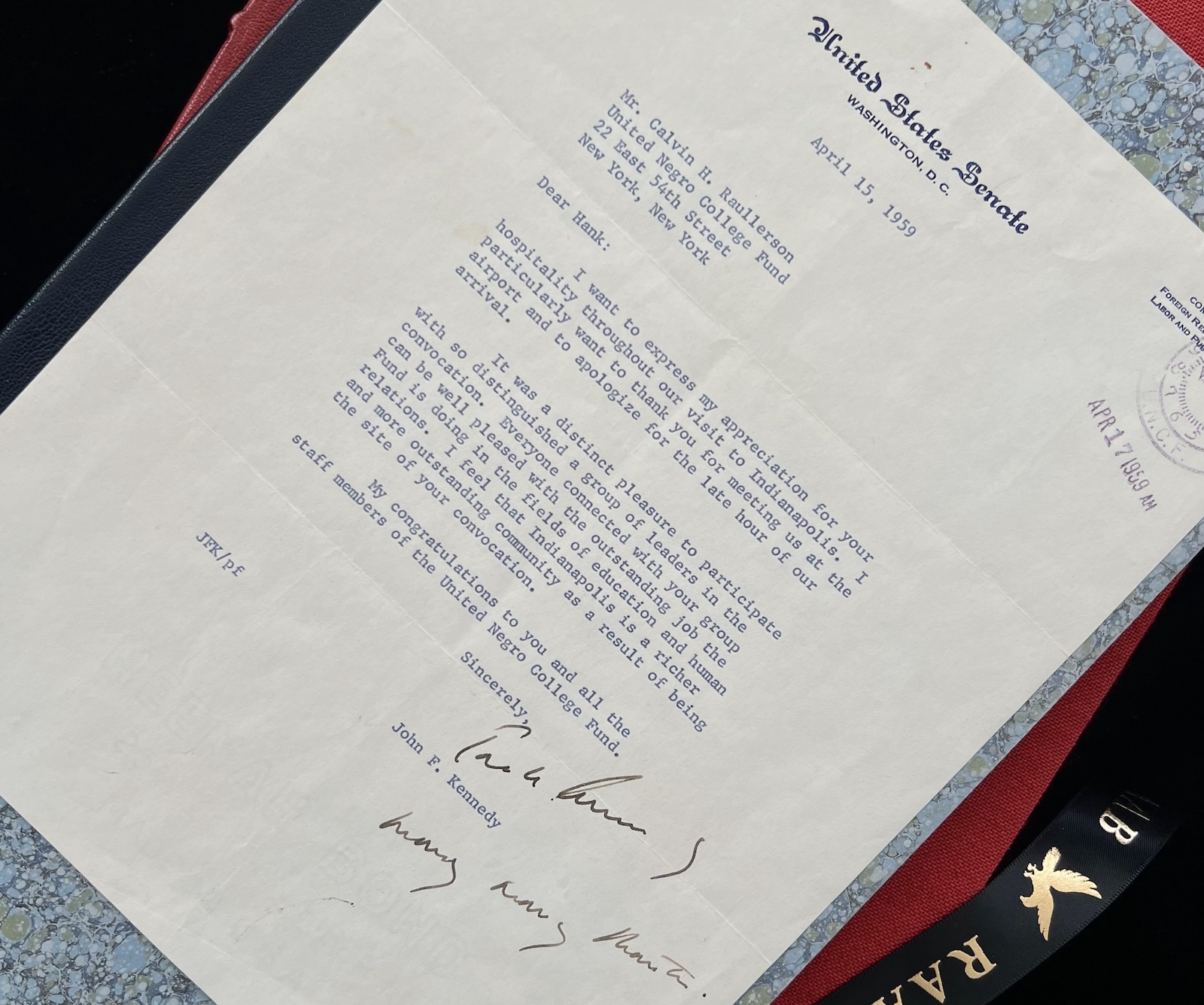Raab’s Guest Curator Talmage Boston Annotates a Selection of Historical Documents that Sheds Light on Presidential Leadership
Talmage Boston is a well-known author, speaker, and onstage interviewer who has been awarded many accolades, both as an attorney and a historian. Boston has been named a “Texas Super Lawyer” by Thompson Reuters every year since 2003, and among the “Best Lawyers in America” every year since 2013. His vast experience in the legal and business worlds, as well as his deep interest in American history has spurred him to write several books, including Cross-Examining History (foreword by Ken Burns); Raising the Bar; Baseball and the Baby Boomer; and 1939: Baseball’s Tipping Point.

His recent book, How the Best Did It: Leadership Lessons From Our Top Presidents, provides an insightful explanation of the most important leadership traits of America’s greatest presidents and how they can be implemented by today’s leaders. In his exhibit below, Boston selects historical documents signed by those presidents and offers his commentary on what they reveal.
“Our Top Presidents” Exhibit Curated by Talmage Boston

George Washington’s Own Copy of a Financial Instrument Securing His Claim to Land in the West
Besides being a great military and political leader, George Washington was also a shrewd entrepreneurial businessman. This document (which he signed twice) reveals his commitment to make sure he received the benefit of his bargain, and interwoven is Washington’s strong desire that soldiers (including himself) receive what they were entitled to receive because of their military service.

Thomas Jefferson on the Legacy of George Washington’s Farewell Message of Neutrality
One of the most unpopular stances Thomas Jefferson took during his presidency was to endorse the Embargo Act, which prevented Americans from having trade relations with foreign countries – in an effort to stop the raiding of American ships by both the French and British. In this document, Jefferson gives his best explanation for why he supported the unpopular legislation.
“For years we have been looking as Spectators on our brethren of Europe, afflicted by all those evils which necessarily follow an abandonment of the moral rules which bind men and nations together.”

The Compassion of Abraham Lincoln
Abraham Lincoln was not only our greatest president, he was also a humane and sympathetic leader. Writing this letter shows his willingness to give personal attention to address whether a Union soldier who had served bravely in the war should be dismissed because of subsequent improper conduct. The soldier’s ultimate reinstatement proves Lincoln’s success at bringing mercy and justice to the situation.

Theodore Roosevelt wrote more books than any American president. That’s why he was always an active advocate for copyright protection for authors around the world. This document shows his effort to do what it took to insure the protection of intellectual property.

FDR was one of our most popular presidents, receiving more than 80% of the electoral votes in all four elections he won. This letter demonstrates why he was beloved by so many – because he was never too busy to say “Thank You” and provide encouragement to his supporters.

President Eisenhower’s Valedictory to Henry Ford II
Throughout his presidency, Dwight Eisenhower had tight relationships with some of the country’s top business leaders – including Henry Ford II. In this letter, written shortly after John F. Kennedy’s defeat of Richard Nixon in November 1960, and less than a month before Ike left the White House, he wrote a letter to Ford that he knew would be treasured by the family for years to come, acknowledging the great assistance the auto titan had provided throughout his administration. In hindsight, the country would have been much better off if Robert McNamara had stayed at Ford Motor Company and never become JFK’s and LBJ’s Secretary of Defense.

As a United States Senator in 1959 fully focused on his ambition to pursue the Presidency the following year, John F. Kennedy knew he needed to do more toward building his relationships with African-Americans. His connecting himself to the United Negro College Fund was a great place to start. As of 1963, he became the greatest champion for Civil Rights in the White House since Abraham Lincoln. This letter ties JFK to his first meaningful engagement with a large group of Black Americans, which got the ball rolling toward having a strong connection to the group that provided his margin of victory in the 1960 election.
To learn more about author Talmage Boston and Raab’s Guest Curators program, view our press announcement.









































































































